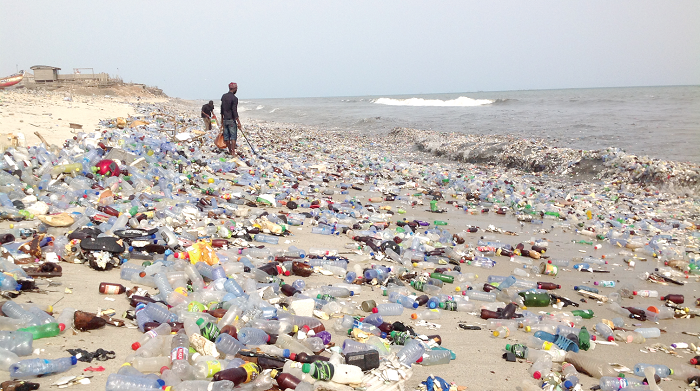
We can solve plastic waste problem
The issue of plastic waste has assumed a worldwide dimension, with dire consequences for the environment and causing climate change that appears not to go away, in spite of efforts by nations and environmental experts to deal with the problems.
Every year, billions of dollars are spent in efforts to manage the 297 million tonnes of plastic waste which global industry analysts believe is generated currently.
Advertisement
The plastic menace has become so serious that this year’s celebration of World Environment Day was on the theme: “Beat plastic pollution”, with the slogan: “Moving towards a plastic-free future”.
Indeed, the United Nations is taking a critical look at plastic waste management.
About a century ago when paper bags were ‘in vogue’, plastic was seen as the ‘undisputable material of the future’. But due to the fact that plastic is not biodegradable and because of the nature of its handling, the use of plastic has brought about challenges, instead of helping to solve problems, especially in Ghana and other developing countries.
In Ghana, plastic production has increased tremendously because of the demand for and the uses to which it is put. Today, everything one purchases is packaged in plastic — from water through to foodstuffs to even vehicle spare parts — resulting in the generation of tonnes of plastic waste daily.
While plastic has many valuable uses, Ghana has become over-reliant on disposable plastic, which has led to severe environmental consequences. The challenge appears to be with its management, as the country is drowned in plastic waste. Fishermen go to sea and return with catches of plastics, instead of fish, and most of our landfill sites, as well as drains and streets, are full of plastics.
One serious consequence of the indiscriminate dumping of plastic waste is the pollution of water bodies, which has made plastics end up in the Atlantic Ocean, killing life in the sea and adversely affecting the livelihood of our fisher folk.
In the face of the harm being caused to the environment and the health hazards posed by plastic waste, many, including Members of Parliament, have called for a complete ban on the manufacture and importation of some forms of plastics.
While the Daily Graphic agrees that the casual disposal of plastics and the resultant adverse effect on the environment call for diverse and drastic measures to stem the trend, we believe that many other measures can be taken to solve the problem.
It is a fact that the ban on plastic use in countries such as Rwanda and, lately, Kenya has produced tremendous results, but we believe a lot more could be achieved with education on the use of plastics.
There is the need to segregate waste to ensure that plastic is treated separately from other waste materials. It is a fact that plastic can be recycled and put to other uses, while recycling can create employment for some unemployed youth in the country.
The few industries involved in plastic recycling in the country, however, complain about the high cost of recycling due to the nature of waste disposal, which makes the cost of inputs higher than is normally expected.
We, therefore, urge stakeholders, such as the Ministry of Environment, the Environmental Service Providers Association of Ghana, firms that recycle plastic and others, to team up and offer the needed education on the separation of plastics, so that we can recycle a greater amount of plastics, which will create more income and employment and make any contemplation of a ban unnecessary.



